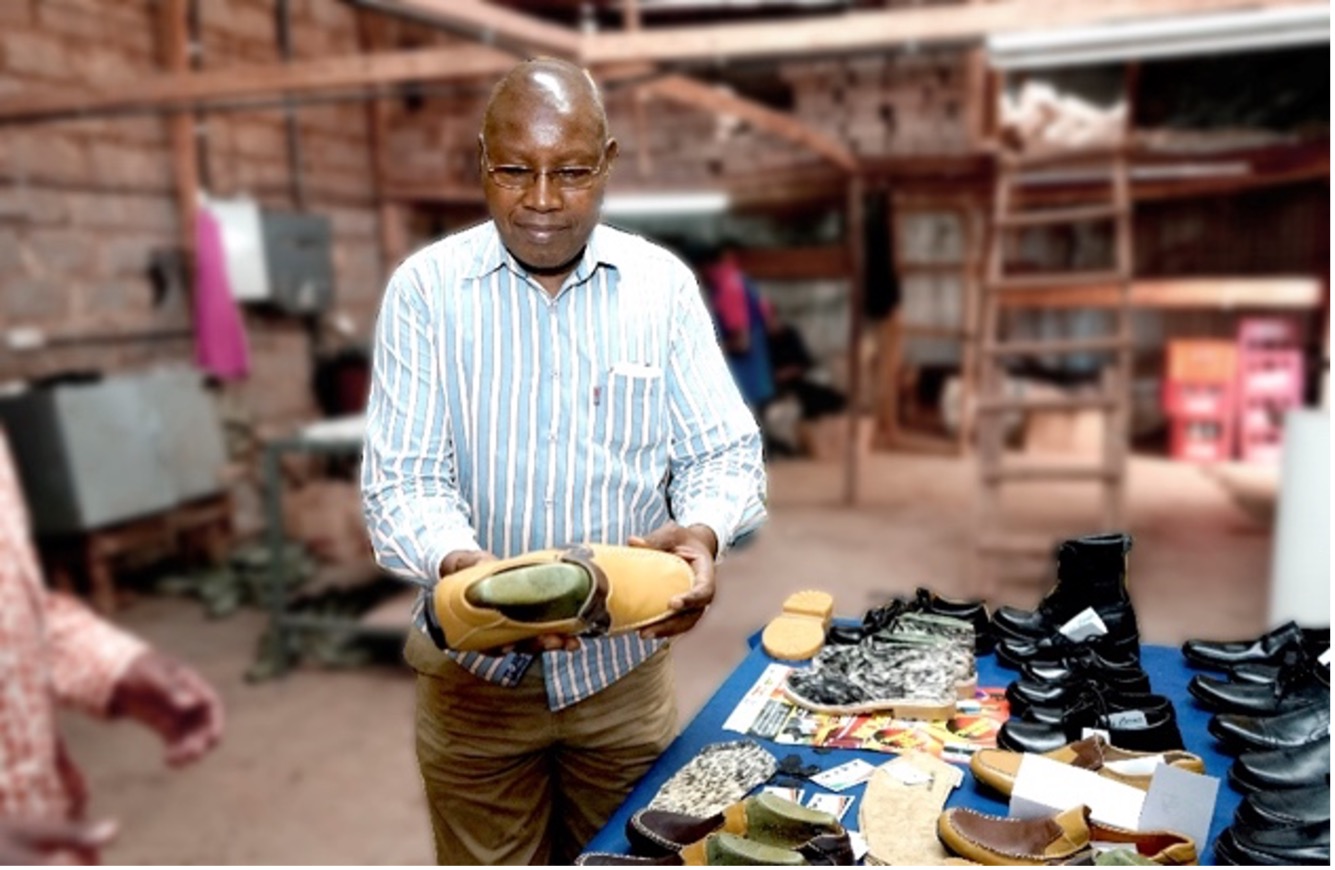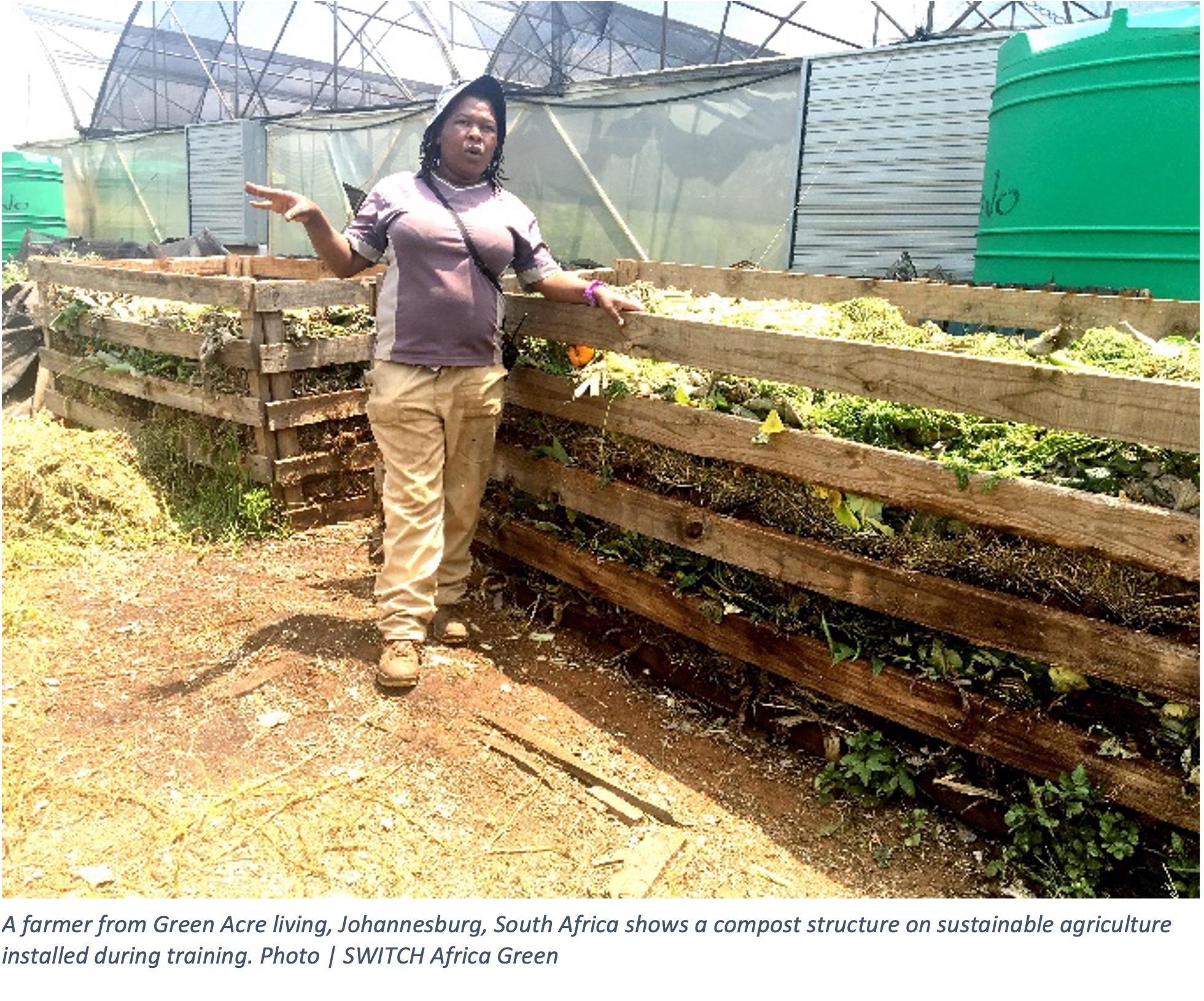 Switch Africa Green
Supporting African countries transition towards an inclusive green economy.
Switch Africa Green
Supporting African countries transition towards an inclusive green economy.

Challenges
In most African countries, a large share of national economic output comes from sectors such as tourism, agriculture, mining, forestry and fishing that rely heavily on natural resources. In many of these countries, this resource base is threatened by degradation, depletion and inefficient practices. Today’s businesses must operate more efficiently and sustainably in order to ensure a stable future for coming generations.
Micro, small and medium-sized enterprises (MSMEs) form the backbone of development in Africa. Today, these small and growing businesses create approximately 80 per cent of the region’s employment, establishing a new middle class and fuelling demand for new goods and services. Through the Switch Africa Green programme, countries identified four priority sectors for support in green business development: agriculture, integrated waste management, manufacturing and tourism. The beneficiary MSMEs are supported to green their processes; this results in a cleaner and safer environments and generates economic as well as social benefits.
Towards a Solution
The overall objective of SWITCH Africa Green is to support countries in Africa to achieve sustainable development by engaging in the transition towards an inclusive green economy that can generate growth, create jobs and reduce poverty. This goal is achieved through support to private sector-led inclusive green growth. More specifically, the project aims to develop green entrepreneurship and the use of a green economy and sustainable consumption and production practices by having in place (i) better-equipped businesses and (ii) conditions in the form of clear policies, sound regulatory frameworks, incentive structures and tax and market-based instruments in targeted sectors.
The programme has three components:
- The policy development component aims to create an enabling environment for green business development that allows private sector-led inclusive green growth.
- The green business development component is aimed at supporting micro, small and medium enterprises (MSMEs) through grants to intermediary organisations to enable them to start and develop green businesses or apply or take up sustainable consumption and production practices and patterns. The grant projects focus on growing “green” sectors and capturing market opportunities for resource-efficient green goods and services.
- The Networking Facility aims to distill and share knowledge, lessons learned and best practices on green business and sustainable consumption and production to create broader awareness and to increase understanding of green business development in the region.
Phase 1 of the Switch Africa Green programme identified gaps in policies, regulations and standards that are required to support green business development in the four priority sectors in the participating countries. Support on specific policies has commenced and further support will be provided through the second phase of the programme. In addition, support in the capacity development of MSMEs in Sustainable Consumption and Production practices through 34 grantees were carried out in Phase 1 of the programme. Over 3,000 micro, small and medium enterprises (MSMEs) have been supported in the uptake of innovative green business and sustainable consumption and production practices across the four priority sectors and five cross-cutting themes (energy efficiency, labeling and standards, water efficiency, eco-innovation and sustainable trade). A total of $11.5 million was disbursed to grantees during Phase 1 of the project.
The MSMEs were provided with toolkits, training and mentorship to adopt more sustainable and resource-efficient production processes, such as energy efficiency, water efficiency, product innovation, record keeping, better product pricing, standards and certification, etc.
The implementation of innovative green business practices and sustainable consumption and production practices by the entrepreneurs has increased productivity, improved time efficiency, cut costs, increased incomes, improved working conditions, improved health, created decent jobs, and led to a cleaner environment, among other benefits. Overall, SWITCH Africa Green is creating a multiplier effect to improve livelihoods, especially of women and youth.
Specifically, mechanisms for South-South cooperation include:
- Training: Implementation of sustainable consumption and production e-learning course for policymakers and other decision-makers in Africa by UNEP, 10YFP and the United Nations Institute for Training and Research (UNITAR) as replication of the programme initially started by SWITCH Asia.
- Policy dialogues: Exchange of good practices on green and Sustainable Consumption and Production policies across countries at national and regional levels.
- Networking facility: The design of the SWITCH programmes includes a networking facility. Through the networking facility, national and regional forums have been held to share knowledge, and exchange best practices and lessons learned on SCP policies, practices and actions as a means to transition to an inclusive green economy in countries.
- Networking across regions: Regional exchanges were hosted with sister programmes – Switch Asia and Switch Mediterranean. There was also a regular exchange of information and best practices across these regions.
The forums provide a networking opportunity for green entrepreneurs, industry leaders, government officials, development partners and non-state actors. Participants are able to share opportunities and challenges, experiences and lessons learned, as well as build synergy and complementarity. The Forums provide a platform for partnerships and collaborations between different initiatives in the green economy and sustainable consumption and production practices. The exchanges within countries, between countries and across regions have proved to be very useful. Grantees have shared knowledge and techniques that have improved their project implementation. The beneficiary enterprises have shared market opportunities, improved production processes and exchanged technologies between countries. This has resulted in the replication of successful interventions in some of the projects.
Contact Information
Countries involved
Supported by
Implementing Entities
Project Status
Project Period
URL of the practice
Primary SDG
Primary SDG Targets
Secondary SDGs
Secondary SDG Targets
Similar Solutions
| NAME OF SOLUTION | Countries | SDG | Project Status | |
|---|---|---|---|---|
A Billion Brains: Smarter Children, Healthier Economies High Level Meeting on South-South Cooperation for Child Rights |
Burkina Faso, Ethiopia, Ghana, Kenya, Mauritius, South Africa, Uganda | 17 - Partnerships for the Goals | Completed | View Details |
Accelerating the Transformational Shift to a Low-Carbon Economy in Mauritius Towards supplying 35 percent of the country’s energy needs with renewables by 2025 |
Burkina Faso, Ethiopia, Ghana, Kenya, Mauritius, South Africa, Uganda | 05 - Gender Equality 09 - Industry, Innovation and Infrastructure 13 - Climate Action | Ongoing | View Details |
Accelerator Labs Network Following collective intelligence methods to address emerging sustainability challenges and the growing demand for local solutions |
Burkina Faso, Ethiopia, Ghana, Kenya, Mauritius, South Africa, Uganda | 08 - Decent Work and Economic Growth 13 - Climate Action | Ongoing | View Details |
Accessibility of Financial Services and the Private Sector in Africa Maximizing the impact of financial cooperation on economic development and industrialization in Africa |
Burkina Faso, Ethiopia, Ghana, Kenya, Mauritius, South Africa, Uganda | 08 - Decent Work and Economic Growth | Completed | View Details |
Accessible Digital Textbooks Promoting inclusive education through Accessible Digital Textbooks |
Burkina Faso, Ethiopia, Ghana, Kenya, Mauritius, South Africa, Uganda | 10 - Reduced Inequalities | Completed | View Details |

